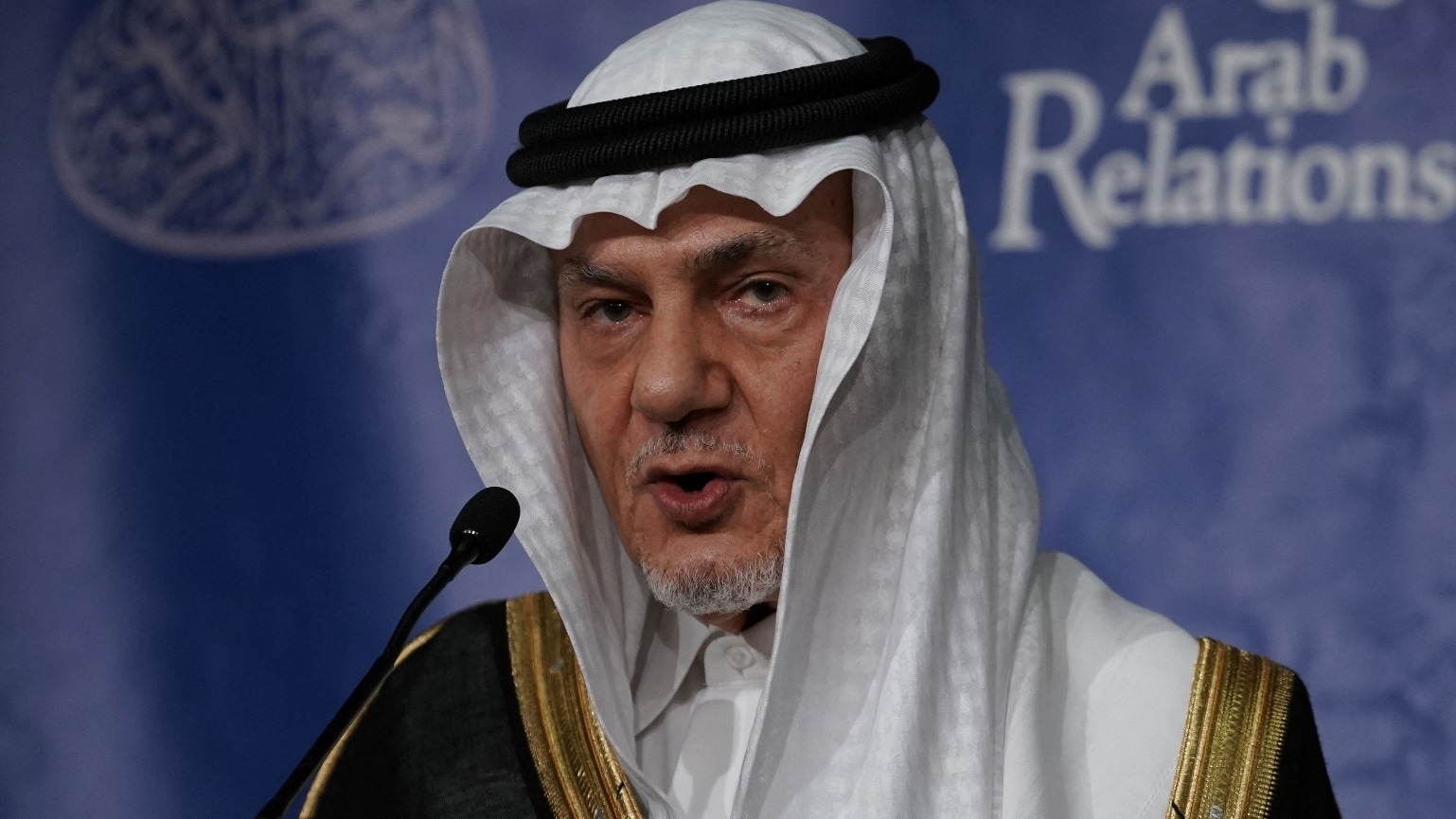Saudi-Iran reconciliation, US couldn't be 'honest broker' says ex-intelligence chief

Saudi Arabia's former intelligence chief has said neither the United States nor Europe would have been able to be an "honest broker" and secure a deal between the kingdom and Iran like the one China has helped obtain.
In an interview with France 24 on Tuesday, Turki al-Faisal said: "China was the one that could pull it off because it has good relations with both of us."
Last Friday, Iran and Saudi Arabia agreed to re-establish diplomatic relations after days of trilateral talks in Beijing.
The two countries agreed to reopen their embassies and missions on each other's soil within two months and committed to non-interference in each other's internal affairs, according to a joint statement issued with China.
The news caught Washington by surprise, Middle East Eye reported, as officials and members of the Washington establishment scrambled to brush off concerns that US influence was waning.
New MEE newsletter: Jerusalem Dispatch
Sign up to get the latest insights and analysis on Israel-Palestine, alongside Turkey Unpacked and other MEE newsletters
David Schenker, who was a senior State Department official during the Trump administration, told MEE for a previous story that the reconciliation deal reaffirmed the downward trend in US-Saudi ties.
"[The] Saudis' turn to Beijing highlights just how poor the state of relations between the Biden administration and Riyadh is," he said.
Last year, Faisal criticised the Biden administration's approach to US-Saudi relations, saying the strain in ties was due to Biden's handling of regional security issues. He added the kingdom felt "let down" by the US’s position on the war in Yemen.
Faisal, a former US ambassador and now chairman of the King Faisal Center for Research and Islamic Studies, which is based in Riyadh, said he was not privy to the details of the agreement but hoped it would lead to further positive developments in the Middle East.
"I think it will have an effect on issues like Yemen, for example. Hopefully on Syria, where we have this continuing bloodletting that is taking place," Faisal said.
The top Saudi royal said that while he may have doubts about the deal, his reservations "are unimportant".
"It's the doubts of the ones who signed the agreement. They're the ones who seem to have this doubt yet about how soon that agreement can be put in place."
Saudi Arabia cut ties with Iran in 2016, after Riyadh's order to execute Shia cleric Nimr al-Nimr led to criticism from Iran.
Supreme Leader Ayatollah Ali Khamenei accused Riyadh of "murder" and protesters attacked Saudi diplomatic missions in Tehran and the northeastern city of Mashhad.
Middle East Eye delivers independent and unrivalled coverage and analysis of the Middle East, North Africa and beyond. To learn more about republishing this content and the associated fees, please fill out this form. More about MEE can be found here.





